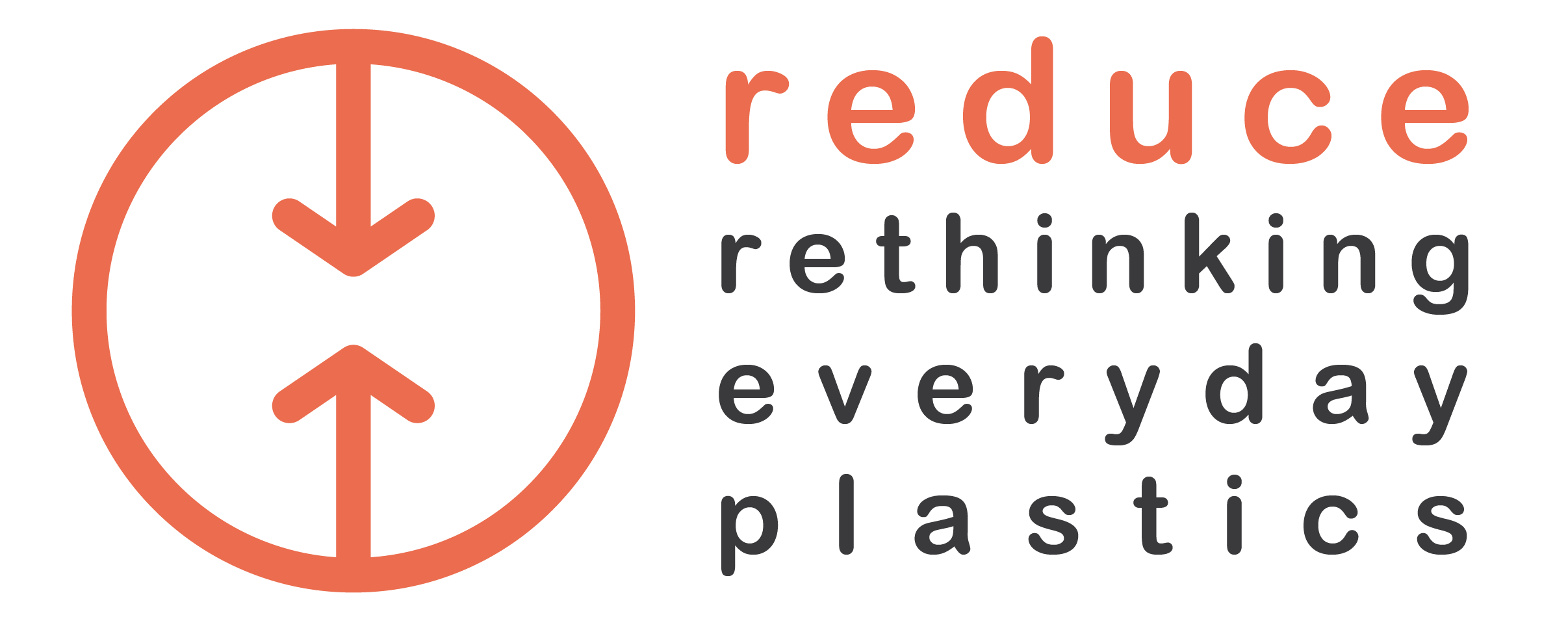Newsletter 2023/02
Work is progressing in the REDUCE project, and on June 8th, we had a large gathering with many of the partners where we discussed preliminary findings from the various work packages. We have conducted focus groups with consumers, analyzed how the plastic problem is discussed politically, and developed methods to map the systems in which plastic is involved. During the gathering, we generated new perspectives in several workshops. Present were LOOP, KTH, BIR, The Norwegian Museum of Science and Technology, ULU of Norway, Friends of the Earth Norway, Consumption Research Norway (SIFO/OsloMet), and the Institute of Product Design (OsloMet). This newsletter summarizes some of the discussions we had.
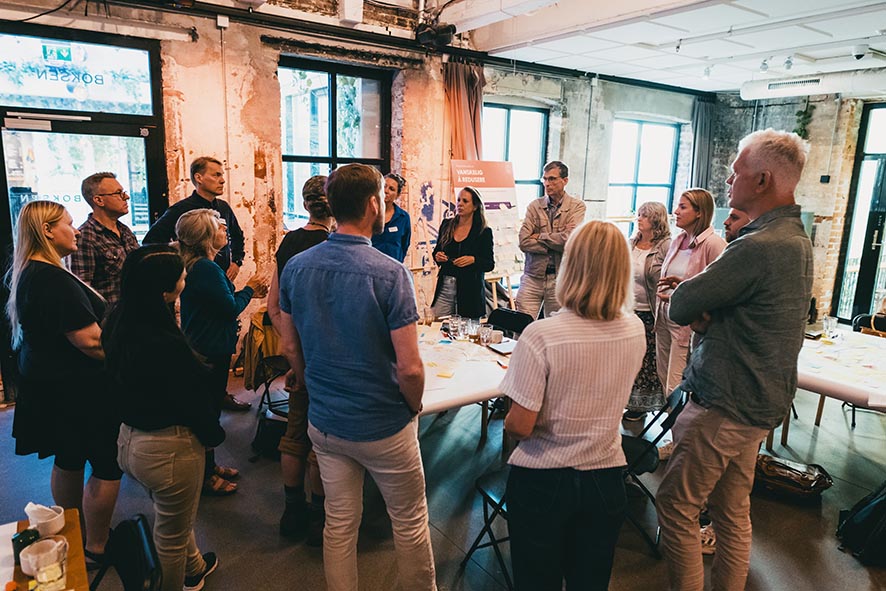
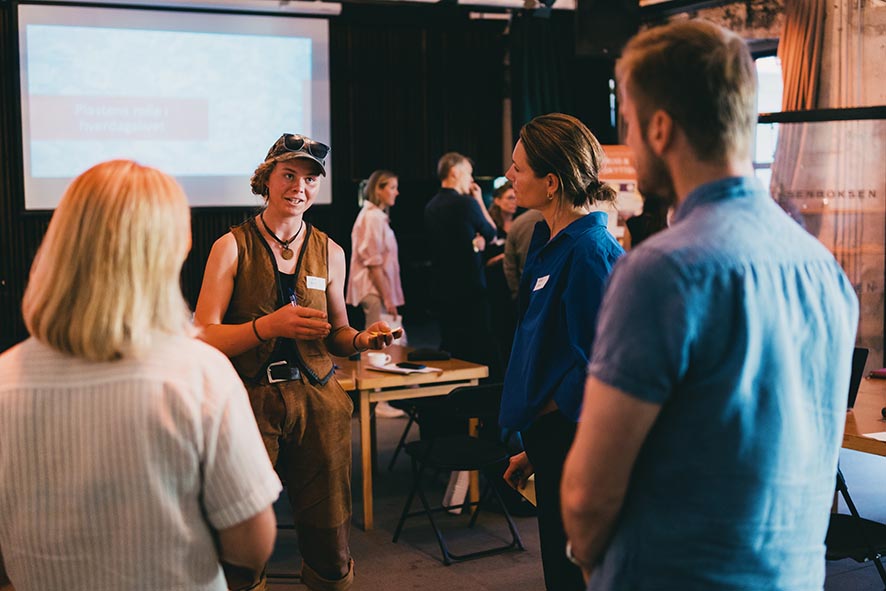
We discussed the ambiguity of plastic as both dangerous and protective. It protects us from the unpleasant and from infection, but at the same time, it is dangerous to us when it ends up in the environment and finds its way into our bodies. Furthermore, we delved into issues related to conscience and responsibility regarding handling plastic products. Many consumers feel guilty about their plastic consumption but find it difficult to do anything about it. Much of the responsibility falls on women. They desire systems that facilitate better opportunities to reduce consumption.
Politically, we have identified different ways in which plastic has been discussed as a problem in the last decades. Initially, plastic littering was highlighted as a visual problem, which led to a focus on the need to collect and recycle plastic. Thus, plastic waste became a valuable resource for recycling companies in line with the principles of a circular economy. Today, the issues related to plastic in the oceans and microplastics have become central in the debate, connecting plastic to the health and livelihood of humans and animals. In the ongoing work towards a global plastic agreement, there is a move toward curbing production, shifting the focus from managing already produced plastic to reducing production volumes. We believe that the new connection between health and plastic through microplastics may have contributed to this shift. The focus on the plastic problem as a littering problem diverts attention from health and volume and directs it toward consumers. Furthermore, municipalities are blamed for capacity issues in waste management. However, it now seems the EU is redirecting attention to the plastic industry. So, what about the perspective of the plastic industry? It projects high growth curves and engages in lobbying activities against threatening regulations from the EU.
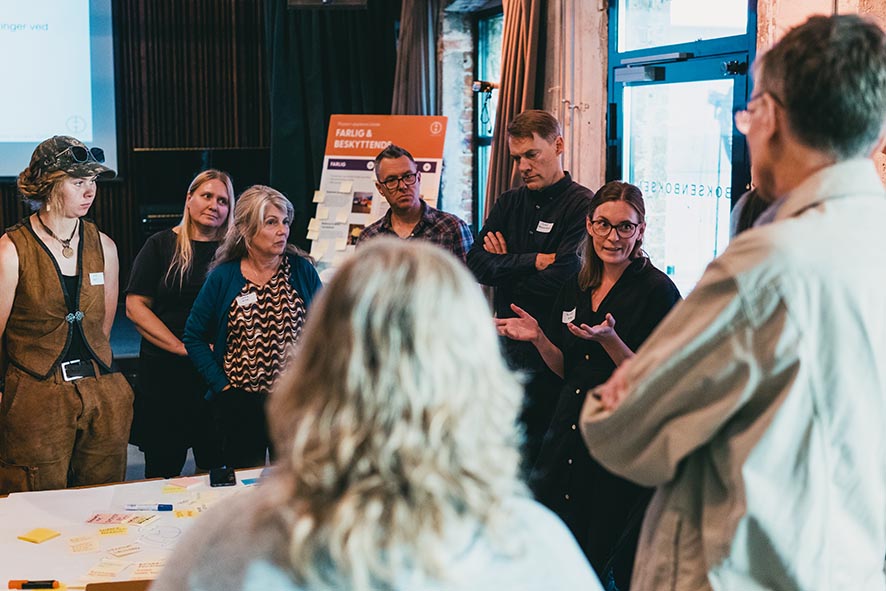
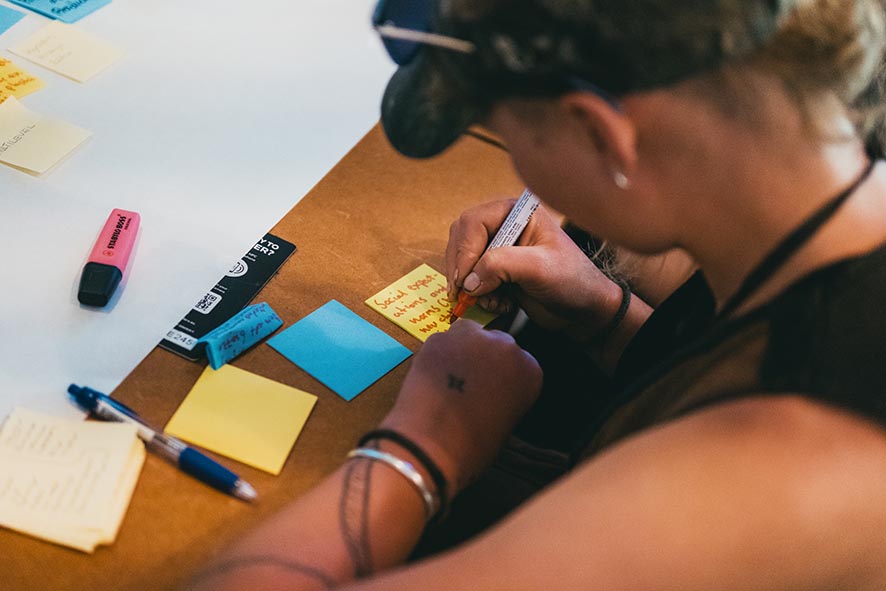
At the same time, it is politically challenging to find tools with significant effects in a world where consumer needs have become what governs and legitimizes all new products. In Sweden, the plastic tax on plastic bags, which now costs 7 NOK, has caused outrage, and the new government plans to remove it. The extensive attention given to plastic bags can easily result in little more than greenwashing while shifting the focus away from the plastic industry’s responsibility. Additionally, plastic is associated with a cheap lifestyle, and not everyone can afford to avoid plastic, which can also lead to a class discussion. Simultaneously, plastic-free trends may result in many of the existing plastic products being replaced and ending up in the trash. So why don’t we just ban the most harmful plastics? To some extent, we have done so with single-use products in the food service industry, but this only applies to a fraction of all plastic products. We managed to ban smoking in public places with the help of smoking laws, so why not plastic? Perhaps because we don’t have good enough alternatives where the product did not exist before.
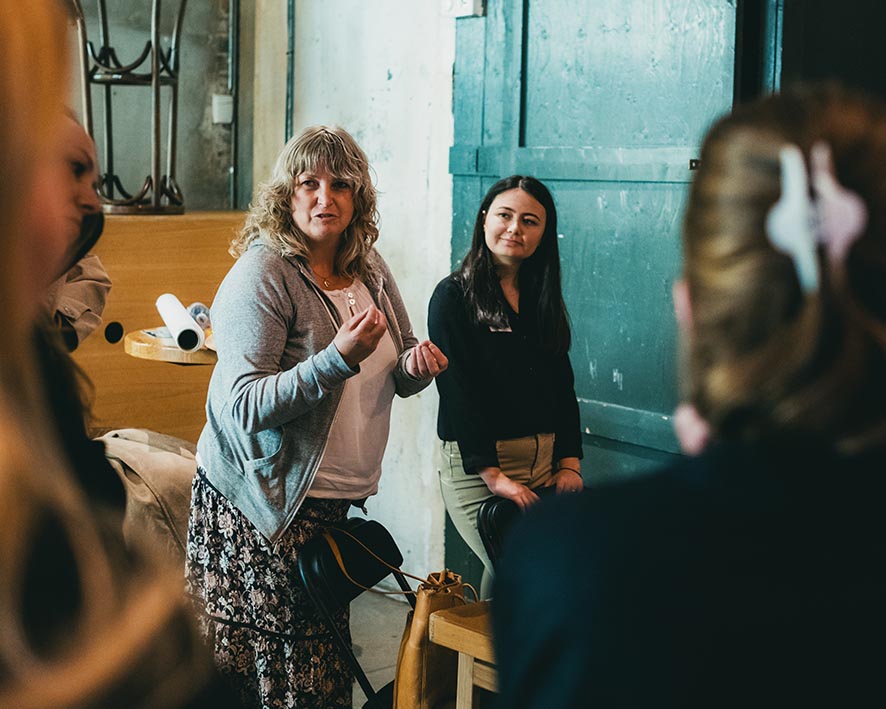
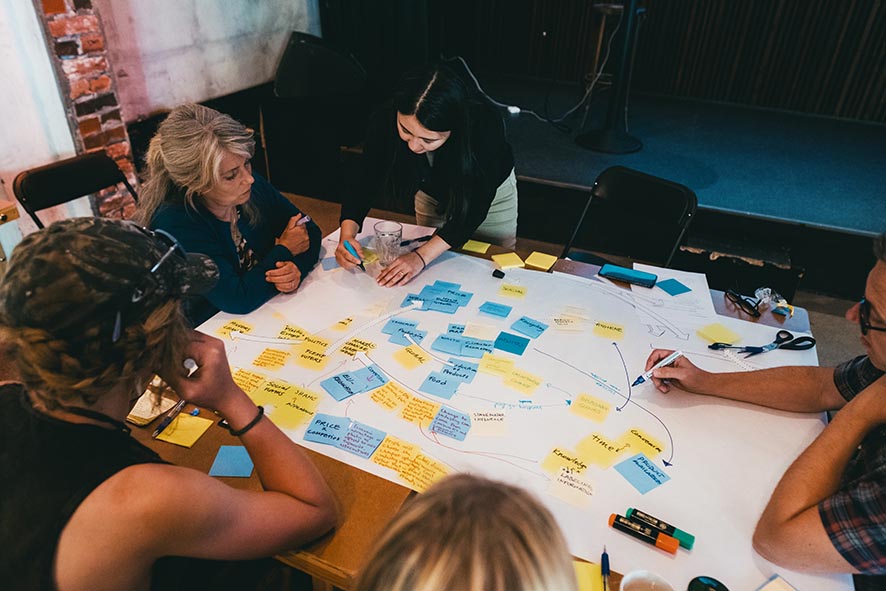
The plastic problem is, in this way, a complex problem where it is not enough to pull on one end of the tangle without investigating what may tighten elsewhere as a result. We must consider feedback mechanisms. Therefore, the systemic perspective in the project is so important. Through systemic design, we develop ways to understand the systems in which plastic consumption is involved to find points of influence for change. During the gathering, we all engaged in collaborative system mapping and reflection. By working together to identify and analyze complex systems, we could explore different understandings of plastic consumption and identify potential intervention points. The insights that emerged will be further utilized in the project.
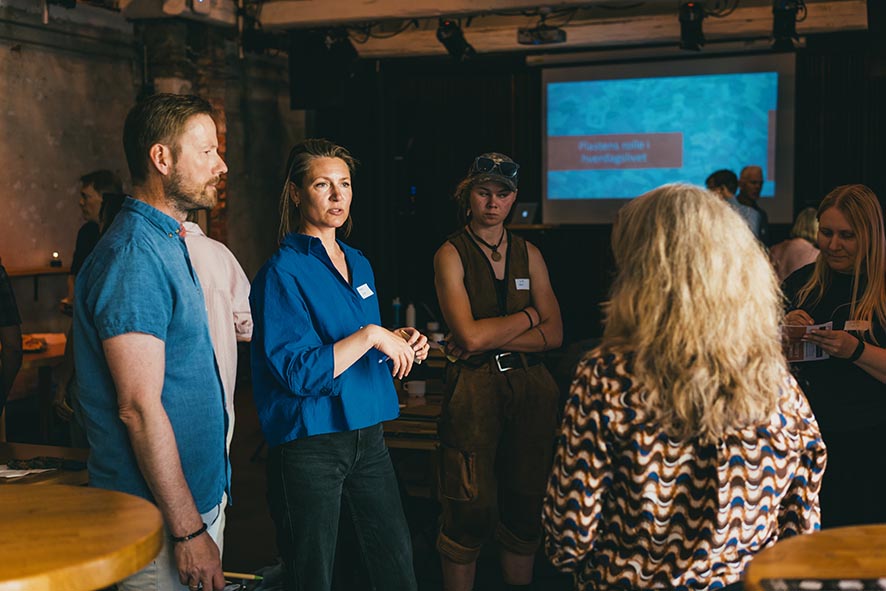
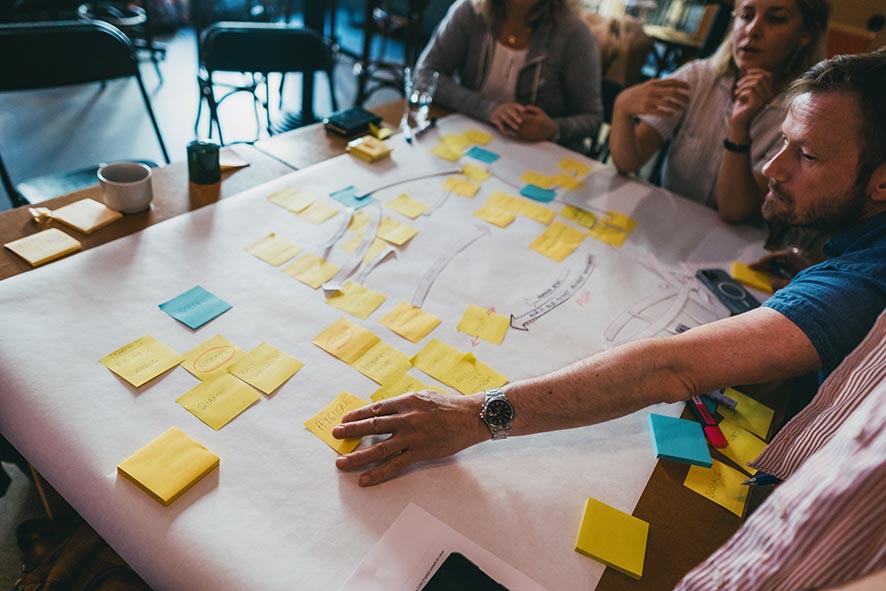
In the next semester, we will conduct a netnography in which we aim to study how frontrunners reduce their plastic consumption. In this context, we define a frontrunner as a person who is particularly concerned with reducing their plastic consumption and makes an extraordinary effort to achieve it. This involves developing and using strategies, doing things differently, enduring disadvantages, perhaps sacrificing something, and maybe paying more, to be able to reduce their plastic consumption. The person has an above-average level of knowledge about plastic and sees it as an environmental problem. The person communicates about plastic through social media, books, or other channels that reach people, with the purpose of encouraging others to reduce their plastic consumption as well. The person may engage in work that contributes to plastic reduction, either as an employee or as an entrepreneur. We will also continue the systemic mapping of plastic consumption and further develop the methods for this.
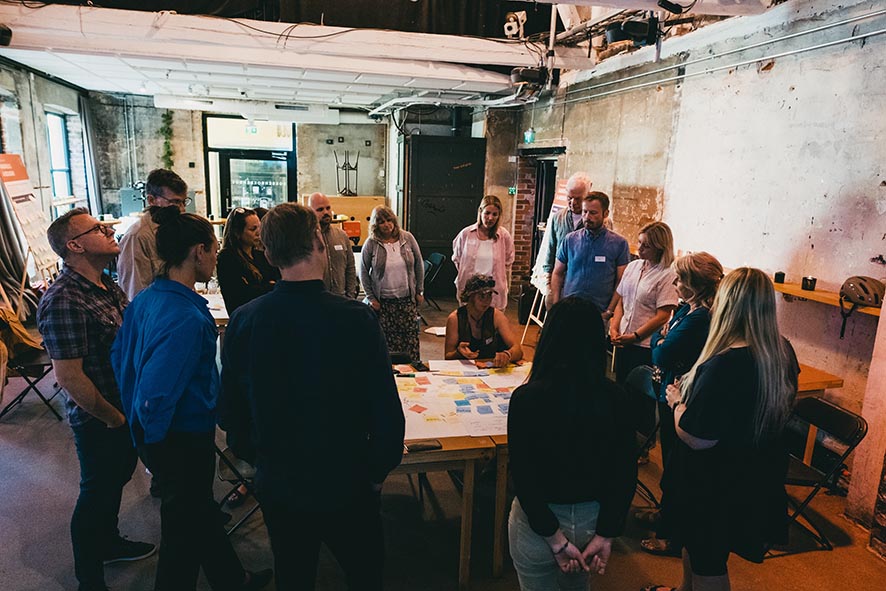
The next major gathering will be in 2024, but we will stay in touch until then. Many of you have contributed through participation in interviews, input, and discussions, providing case studies for students, as well as writing, research, and consultancy work this year. Thank you!
The REDUCE team at SIFO wishes everyone a wonderful summer!
